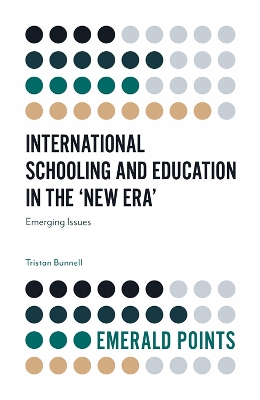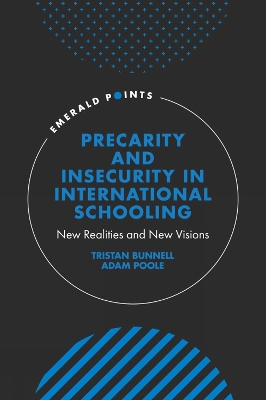Emerald Points
2 total works
This book explores the main driving forces behind this growth. Dr Bunnell argues that a 'New Era' of unprecedented growth still looks set to appear and explores the complex driving forces behind this expansion. He uncovers the set of inter-connected perceived 'guarantees' that are emerging, driving both the supply and demand which appears at first glance to be a very strong platform for growth. However, this work fulfils a need to get beneath the data and reveals the foundations of this enormous future growth to be rather precarious. Given its in depth insight into international schooling, this book will prove invaluable to researchers and education practitioners alike.
Precarity and Insecurity in International Schooling
by Tristan Bunnell and Adam Poole
The arena of International Schooling is growing rapidly and changing in nature. The number of schools delivering a curriculum wholly or partly in English outside an English-speaking nation reached 12,000 in 2020. China and the Middle East is the emerging centre of activity, and local parents are the main customers. This is an increasingly important, yet still overlooked, area of schooling. Although it continuously attracts teachers, mainly from Britain and North America, the reality is precarious and insecure.
Precarity and Insecurity in International Schooling addresses this paradox, and starts a new discussion, arguing that a more positive lens of inquiry is required to understand the situation. In so doing, the book introduces new sociological evidence, concepts and visions linked to the accumulation of 'resilience' and 'transition capital'.
This book will be of interest to students and researchers wishing to gain a new and contemporary insight into the rapidly changing world of International Schooling.

